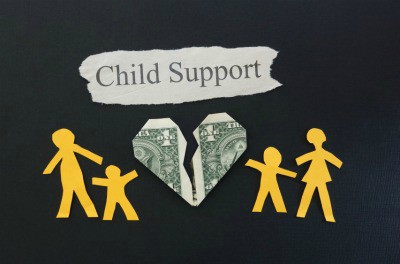 On January 14, 2014, in the published opinion of Mayer v. Mayer, the Virginia Court of Appeals provided some much-needed guidance regarding continued child support for disabled children under Virginia law. Per Virginia Code § 20-124.2 a parent may petition and the court may grant the continuation of support for any child over the age of 18 who is (a) severely and permanently mentally or physically disabled, (b) unable to live independently and support himself, and (c) resides in the home of the parent seeking or receiving child support. However, there has been no bright-line rule as to whether the petition for continued support has to be filed before the child is emancipated in order for the court to consider it, or whether it can be filed after emancipation. The Court of Appeals in Mayer greatly clarified Virginia law in this area, by ruling that (1) a petition for continued child support can be filed after the child turns 18, (2) the custodial parent or guardian is a proper person to petition for continued support as that person is exercising his or her “right to act as a conduit for the payments of support to the child,” and (3) the trial court has broad discretion in hearing evidence about continued support and a ruling will only be overturned when plainly wrong or without evidence to support it.
On January 14, 2014, in the published opinion of Mayer v. Mayer, the Virginia Court of Appeals provided some much-needed guidance regarding continued child support for disabled children under Virginia law. Per Virginia Code § 20-124.2 a parent may petition and the court may grant the continuation of support for any child over the age of 18 who is (a) severely and permanently mentally or physically disabled, (b) unable to live independently and support himself, and (c) resides in the home of the parent seeking or receiving child support. However, there has been no bright-line rule as to whether the petition for continued support has to be filed before the child is emancipated in order for the court to consider it, or whether it can be filed after emancipation. The Court of Appeals in Mayer greatly clarified Virginia law in this area, by ruling that (1) a petition for continued child support can be filed after the child turns 18, (2) the custodial parent or guardian is a proper person to petition for continued support as that person is exercising his or her “right to act as a conduit for the payments of support to the child,” and (3) the trial court has broad discretion in hearing evidence about continued support and a ruling will only be overturned when plainly wrong or without evidence to support it.
In the Mayer case, on May 10, 2012 the custodial parent Linda Corso-Mayer (mother) filed a petition in the trial court seeking the payment of continued child support by Bruce M. Mayer (father) for their daughter. Father filed a Motion to Dismiss arguing that the trial court lacked subject matter jurisdiction to consider mother’s petition and that mother lacked standing to petition for continued support. Father claimed that mother’s petition was untimely because the daughter had already turned the age of 18 and had also earned her general equivalency degree (GED) before mother filed her petition. Father argued that his responsibility to pay child support had already ended. The trial court denied father’s motion, finding that under Virginia Code Section 20-124.2(C) the court can revisit child support and make an award if it finds the circumstances require it. After a hearing on the merits, the court found that an order of continuing support was appropriate and ordered father to continue to pay $900 a month in support. Father appealed the ruling.
The Court of Appeals quickly dismissed father’s argument that the trial court did not have subject matter jurisdiction to hear mother’s petition for continued support, citing the language in Virginia Code § 20-124.2(c) that “expressly grants the appropriate circuit court with the authority to ‘order the continuation of support for any child…'” The Court further noted that the “plain language” of Virginia Code Section 20-124.2(C) “expressly states that the trial court ‘may also consider the continuation of support for any child over the age of 18… .'” Thus, the Court ruled that a “child” under Code 20-124.2(C) may be “over the age of 18” years.
Finally, the Court rejected father’s argument that the mother did not have standing to file for child support because the daughter had already turned 18 and had already received her GED before mother filed the petition for support. In doing so, the court opined, “if the mother of a child who may have a severe and permanent disability (that prevents the child from living independently and supporting herself) cannot seek continuing support on behalf of the child, then who would have standing to do so?”
The Court of Appeals upheld the trial court’s ruling and father will continue to pay child support for the parties’ disabled daughter.
If you have a child with severe disabilities and receive or have received in the past child support from the non-custodial parent, you should consult with an attorney about (a) whether continued child support is an option and (b) if so, how to best go about receiving continued support. The family law attorneys at Livesay & Myers have years of experience dealing with these and other child support issues in the courts of Northern Virginia. Contact us to schedule a consultation today.
See also: Child Support For Children With Autism In Virginia
